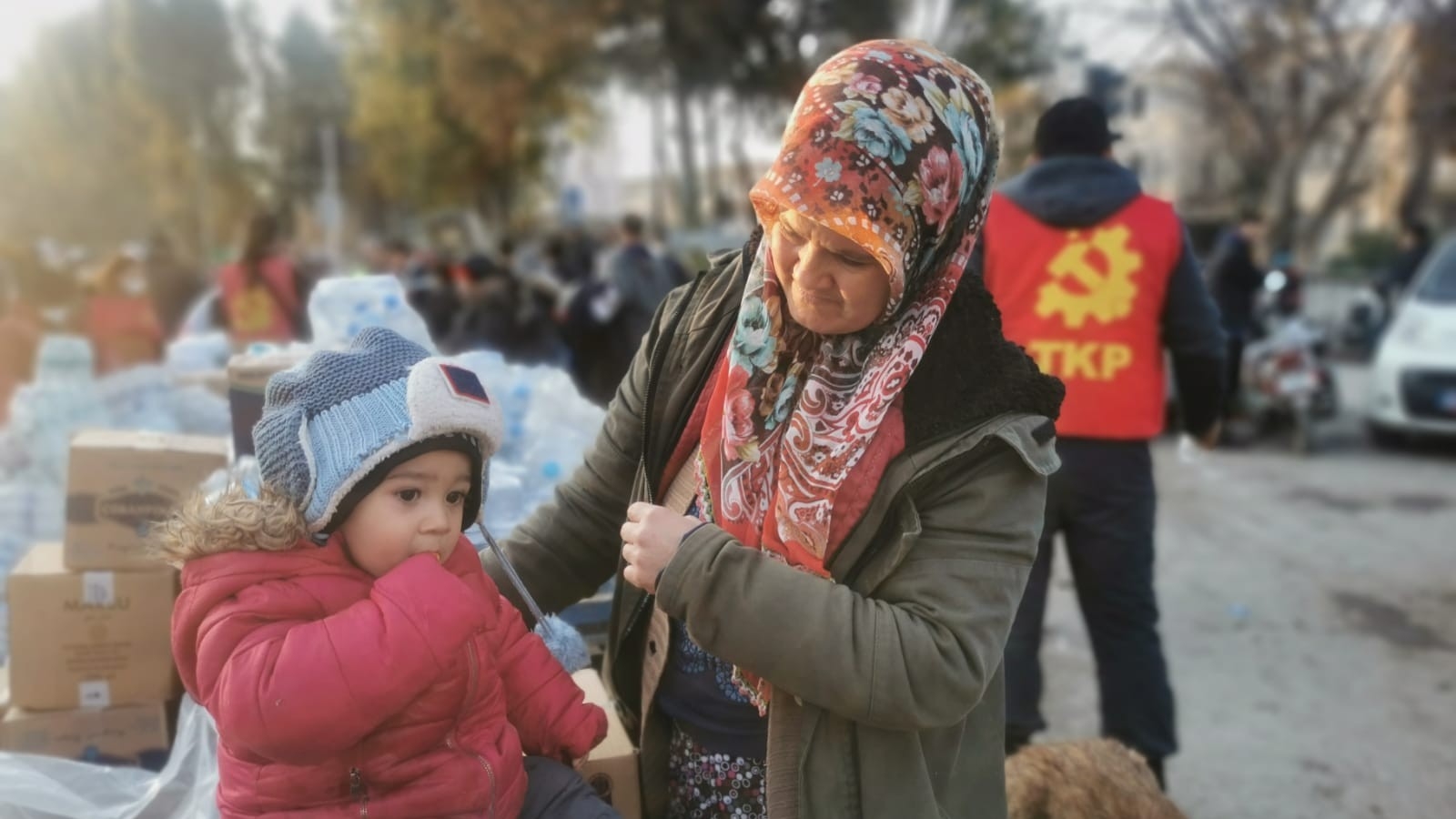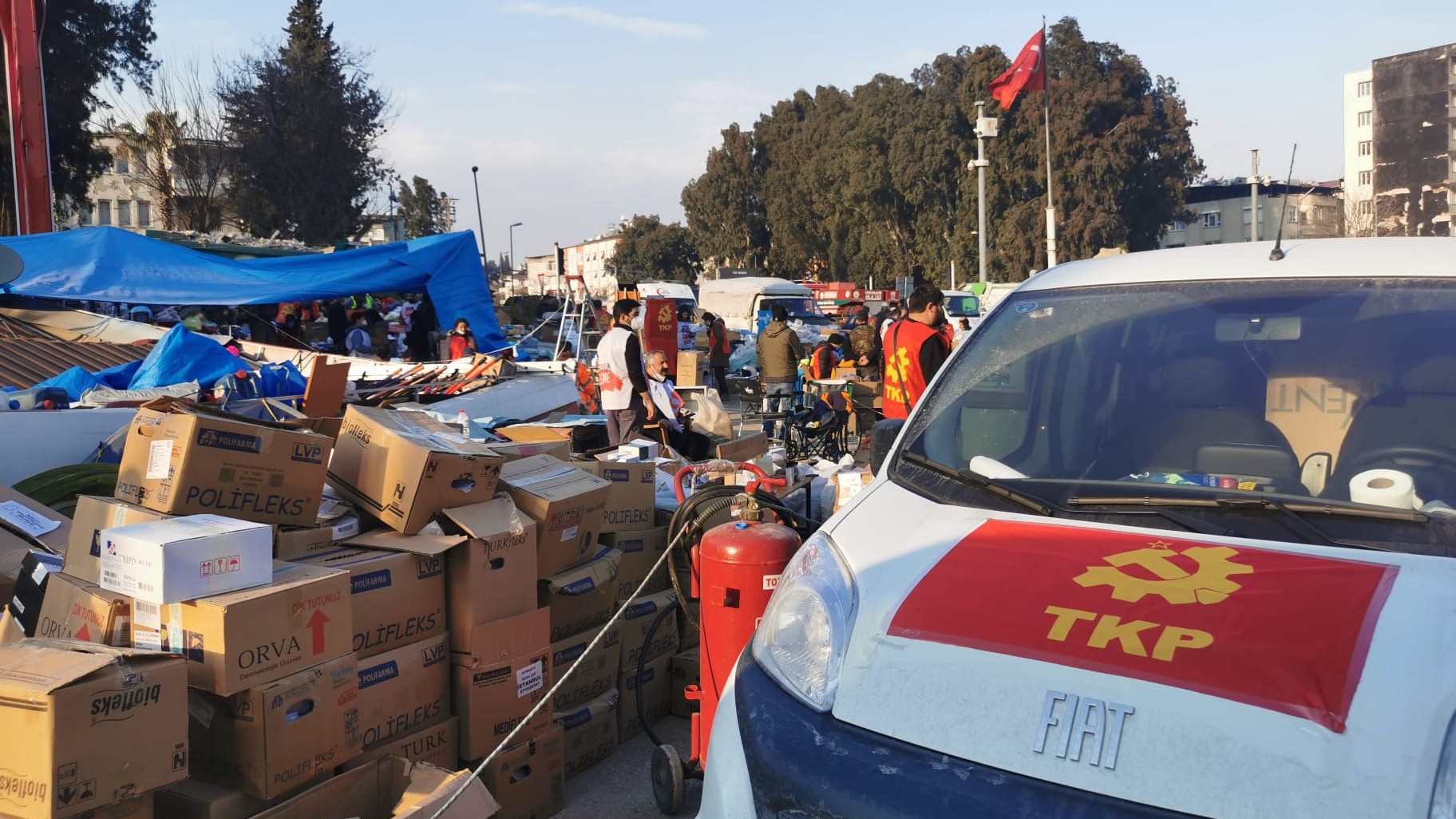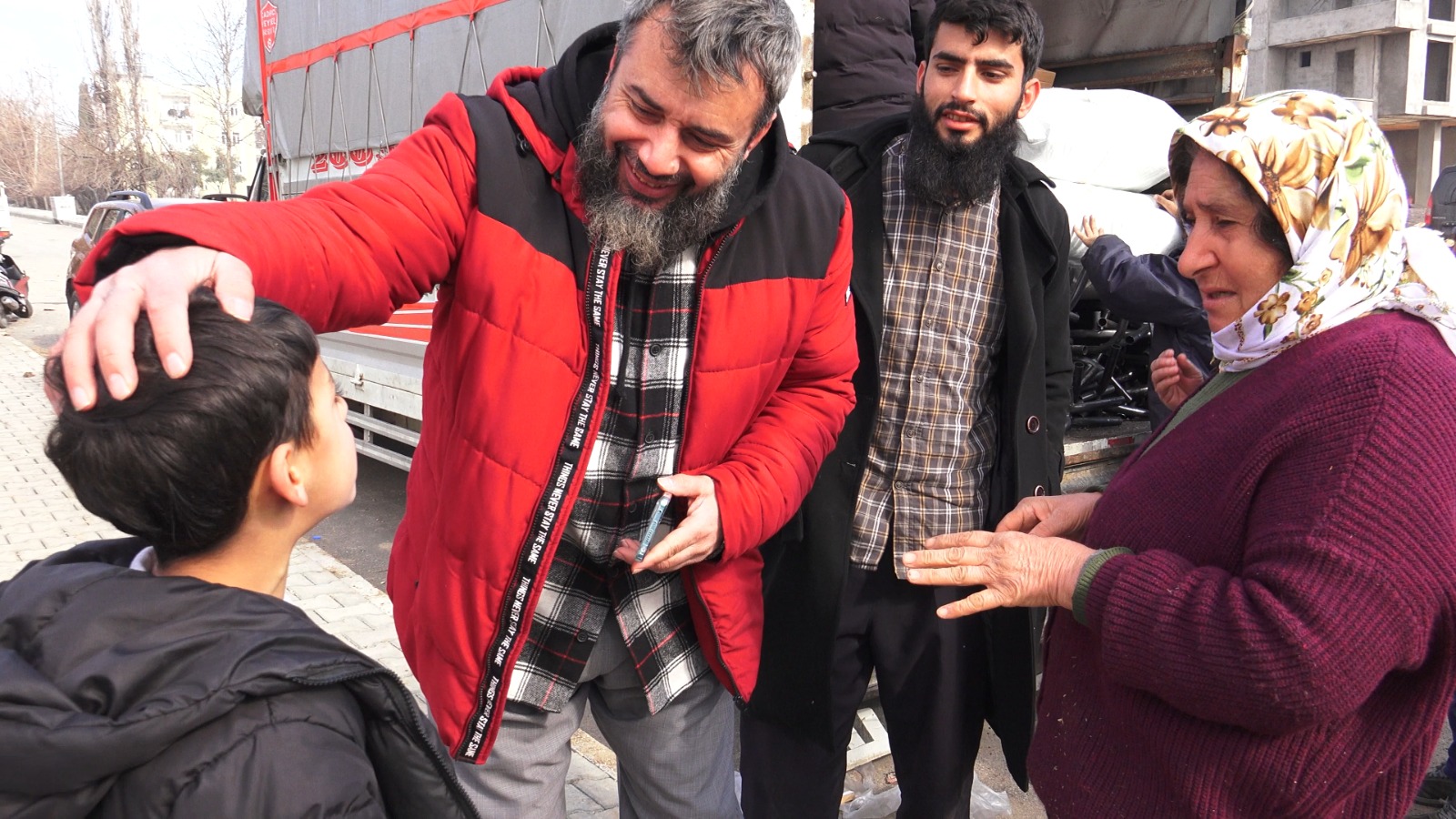Turkey earthquake: Communist and Salafist groups fill void left by state

Fringe political and religious groups that are usually at odds with the Turkish government may be reversing some of the public's negative perceptions of them in earthquake-ravaged areas, after rushing to cities severely affected by the disaster before the state could mobilise.
Turkish communists and Salafists rushed to the southern border province of Hatay on the first day of the disaster, where they carried out search and rescue efforts and also provided emergency first aid, food and clothing.
Homes across southern Turkey and northwest Syria were devastated early on 6 February by twin earthquakes and associated aftershocks that left buildings destroyed and thousands of people buried under heaps of concrete as they slept.
'This is our responsibility to the society we live in'
- Murat Gezenler, Salafist leader
More than 45,000 people have been killed across Turkey and Syria and officials say the death toll is likely to rise.
Ozan Yilmaz, a member of the Turkey's Communist Party's central committee (TKP), told Middle East Eye that his group filled a crucial void when the Turkish government couldn't make it to the scene of the disaster in the first 48 hours.
New MEE newsletter: Jerusalem Dispatch
Sign up to get the latest insights and analysis on Israel-Palestine, alongside Turkey Unpacked and other MEE newsletters
"The party started working in the Armutlu district of Antakya early in the morning of the earthquake," he said.
"We set up a stand consisting of technical tools to help rescue workers. There were work tools, generators, lighting materials and similar products there."
Yilmaz added that they had set up a field hospital to treat survivors and also established teams in other parts of Hatay, such as Iskenderun and Arsuz, and have continued to help victims in quake-ravaged cities such as Kahramanmaras and Adiyaman.
Responding to MEE's questions about whether they had established any coordination with government institutions despite their opposition to the state, Yilmaz said they directed patients to state hospitals and reported some cases to the disaster management agency, Afad, when the TKP's own rescue teams couldn't get through the rubble.
"Because what we have witnessed since the day we came here was the impression that the government ignored and sacrificed the people here," he said, adding that the TKP was there to alleviate their problems as suggested by communist ideology.
"There is a direct link between what we do here and our criticism of the government."
Turkish President Recep Tayyip Erdogan has acknowledged some initial problems with the country's response to the disaster, but has maintained that no government could be ready for an earthquake of this magnitude.
"Such things have always happened. It's part of destiny's plan."
Turkey lies on two fault lines and has earthquake building codes dating back more than 80 years, but the first quake, which registered magnitude 7.8 at 4:17am local time, followed by another of 7.5 dozens of kilometres away, were far more intense than anything seen since 1939.
'This is our responsibility'
In addition to the communists helping relief efforts, Salafist groups were also spearheading relief efforts in the quake-hit areas.
Ozcan Yildirim, a Turkish Salafist leader, told MEE that Salafists such as himself were working in Gaziantep, Hatay, Malatya and Kahramanmaras and had commissioned a bakery to distribute 25,000 pieces of bread per day in two of the affected cities.
"The main dynamic that motivates us is the holy book of Allah and the Sunnah [teachings] of the Messenger [the Prophet Muhammad]," said the Salafist leader, adding that they had come together with other political groups during earthquake relief efforts.
Yildirim said that any previous misconceptions residents held against the Salafists melted away when they launched their humanitarian work.
"This is indeed the method of the prophet," he said.
Another Salafist leader, Murat Gezenler, who is known for apparent radical rhetoric, said that like-minded Salafists had been active in emergency aid operations since the day of the disaster
"First of all, we had tents built to solve the housing problem. In addition, we took winter clothes, ready-made food and similar special needs and sent them to the region," said Gezenler, adding that a search-and-rescue team was also involved in the work.
Gezenler said Salafists conducted similar work in 1999 when an earthquake hit western Turkey, killing nearly 18,000 people.
"This is our responsibility to the society we live in," he said, adding that they did not carry out their humanitarian work in the name of gaining more members.
"We haven't encountered any problems yet," he said, adding that "in particular, state officials such as the police and soldiers in the region were showing all kinds of assistance."
Middle East Eye delivers independent and unrivalled coverage and analysis of the Middle East, North Africa and beyond. To learn more about republishing this content and the associated fees, please fill out this form. More about MEE can be found here.







